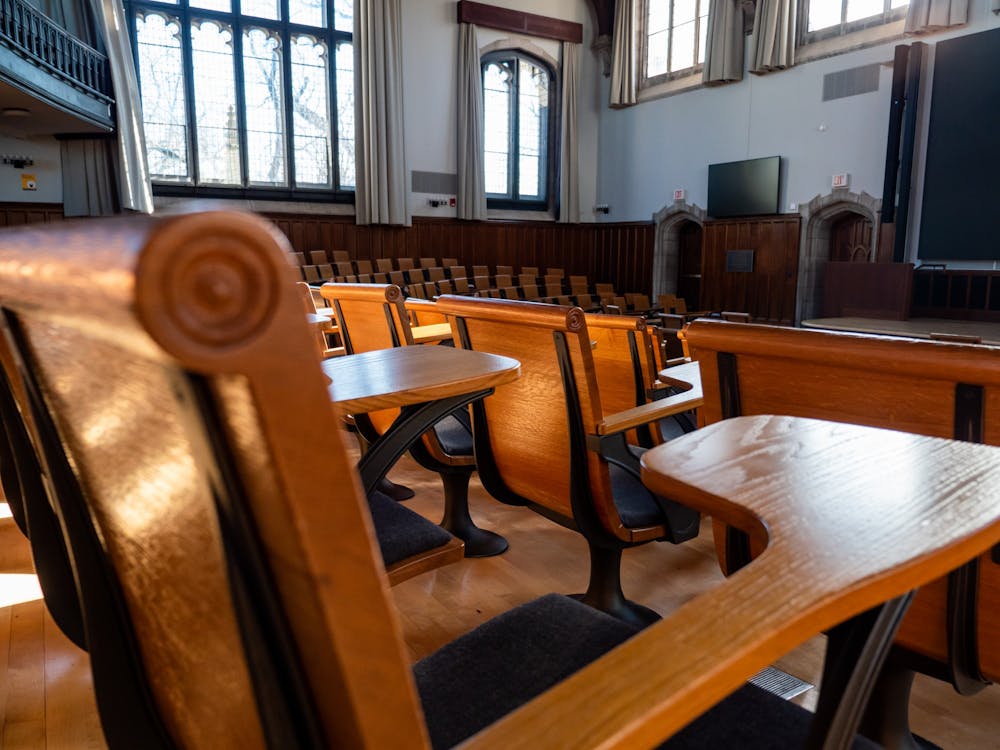One thing is for sure: The University wants us to know that it’s committed to in-person learning. Dean of the College Jill Dolan, along with Acting Dean of the Graduate School Cole Crittenden and Dean of the Faculty Gene Jarrett, took to the pages of The Daily Princetonian to set that principle in stone. Dolan has stuck by that policy in an interview with the ‘Prince,’ and sent a letter to the student body on Feb. 18, insisting that “the success of your education demands that you be present and healthy at each class meeting so that you can participate actively.”
We share the administration’s belief that in-person learning is preferable to virtual options and has the potential to affect engagement. But time and time again, the administration has refused to hear the specific concerns of immunocompromised students, who are unsafe on campus with less restrictive COVID-19 measures. The administration’s failure to respond publicly to these concerns suggests a serious lack of compassion. Providing individual accommodations for students who cannot come to class would do nothing to undermine the University’s laudable goal to get us back into in-person classrooms. But when the University refuses to even address the issue, it perpetuates the myth that making accommodations is akin to pushing us all back to the start of the pandemic, when all learning was virtual only.
Including students virtually isn’t impractical — we’re doing it as we speak! With students in isolation housing, professors are already running hybrid classrooms. There are official University policies that guarantee students in isolation the ability to attend classes over Zoom.
Immunocompromised students have not been given such a clear policy — instead, students are encouraged to contact the Office of Disability Services for individual accommodations. But why can’t the University be accommodating on a wider scale?
We acknowledge that hybrid learning works with varying levels of effectiveness in different circumstances and that with aging technology in many classrooms, hybrid learning may strain the attention of professors and hurt the educational experience. But this reflects a fundamental failure of the University to invest in the technologies that have powered us through the pandemic — not a reason to avoid pursuing their accommodations. To ensure that we will be able to accommodate students who cannot participate in class for any reason, we need to invest in a massive upgrade of the campus: ensuring there are central microphones, easy-to-use projectors, and adaptors in every classroom.
Some hybrid infrastructure, such as built-in cameras, microphones, and speakers, currently exists in some classrooms. Expanding these options would allow the University to better accommodate the needs of immunocompromised students. The University has the funds to make this upgrade, which would have broad-ranging positive impacts on the learning experiences of all students, not just those who are immunocompromised. Such infrastructure could be used to encourage professors to bring in guest speakers and experiment with immersive experiences. The University’s perpetual construction and its efforts to broadly expand access to a Princeton education will not live up to their potential if improved facilities don’t include the technical improvements critical to expanding the educational experience for existing and future students.
An investment in hybrid learning options does not mean a return to the spring of 2020. The University can and should pioneer learning models that allow for more equitable access to the classroom. Professors can still set attendance and participation requirements. But professors should also have the technological systems in place ready to include students when the circumstances do not allow for in-person instruction.
We have a responsibility to all our community members, including those who are immunocompromised. If Princeton wants to move forward with purpose and compassion, the University’s approach to hybrid learning needs to change.

146th Editorial Board
Chair
Rooya Rahin
Members

Won-Jae Chang
Genrietta Churbanova
Omar Farah
Kristal H. Grant
Josiah A. Gouker
Caitlin Limestahl
Rohit A. Narayanan
Tanvi Nibhanupudi
Isabel Rodrigues








